Onions
Thoughts and caramelization.
This newsletter is about my and our love for onions.
In our cruel world, people and things that are essential are often also invisible. Onions are a prime example of this injustice. They're the first in the pan or the pot, the basis for the sauce, stock or curry, laying down the canvas that enables other foods to shine.
I like this interview excerpt from Mark Kurlansky, who wrote a book about onions (gotta put it on my reading list! I loved his book about cod):
I thought that onions were being underrated. They’re always around, and everybody uses them. You know, there’s a difference between something being common and being ordinary. Onions are common, but they are actually an extraordinary thing. They’re very unusual — both biologically and gastronomically. And because of these unusual qualities, they’re used just about everywhere in the world. One of their unusual qualities is that they can grow anywhere — in tropical, arid and even arctic climates.
Onions are identified as a crop of economic potential in a resource-strapped future by the Food and Agriculture Organization (FAO) in FUTURE SMART FOOD: Rediscovering hidden treasures of neglected and underutilized species for Zero Hunger in Asia (pdf). This report has been my guiding document for the past four years. It’s what I drew from to launch Climate Cookery as a CPG food business and sell a tamarind hot sauce.
It makes sense that the FAO is pushing onions — they’re hardy and adaptable, but also so goddamn good, too.
Historically, they’re often associated with poverty — a food that gets you through lean times. (Maybe I’ll try making these Depression-era peanut-butter stuffed onions some time). I believe in the power of onions to help us get through the harsh times ahead.
Centering onions
My lunch today centers onions, prepared in two ways. Nobody puts onions in the corner!
An open sandwich of goat cheese and caramelized onions with a balsamic raw onion relish. It’s a sharp, beautiful contrast between the two types of prepared onions — cooked and raw. I’m gonna make another one :)
Cooked
I love caramelizing onions -- it's a beautiful way to prepare this vegetable. It’s time-consuming but simple. Here’s how I do it:
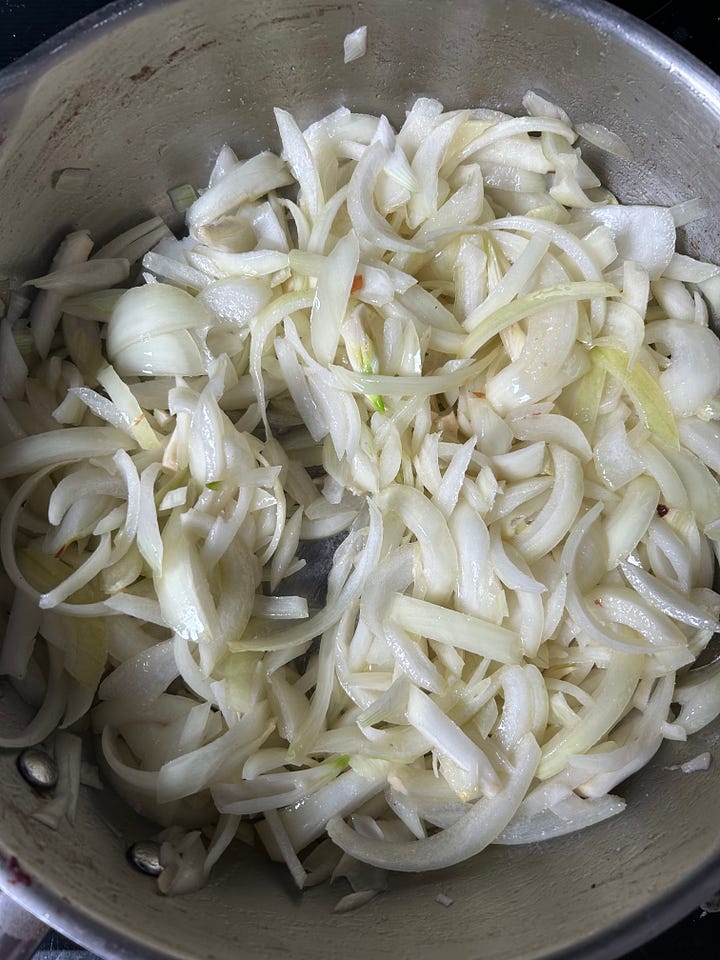
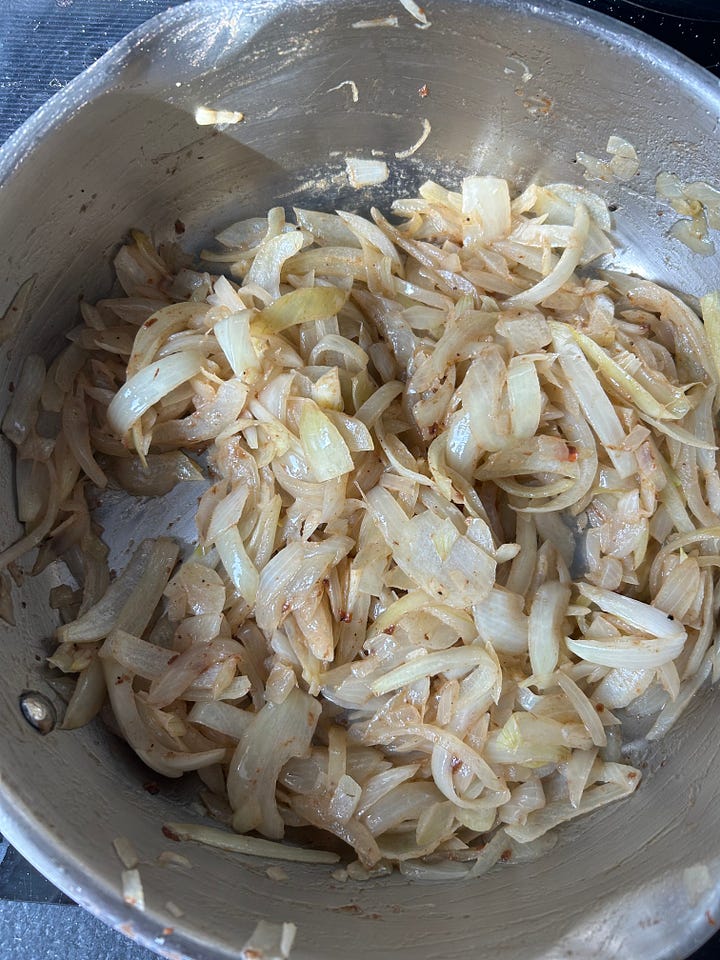
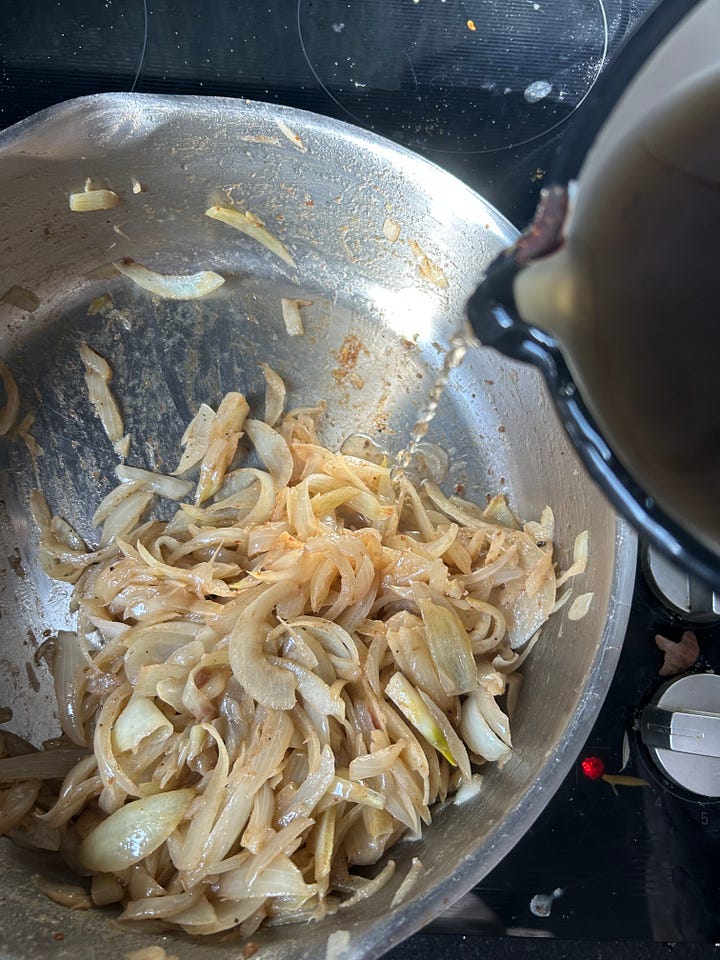
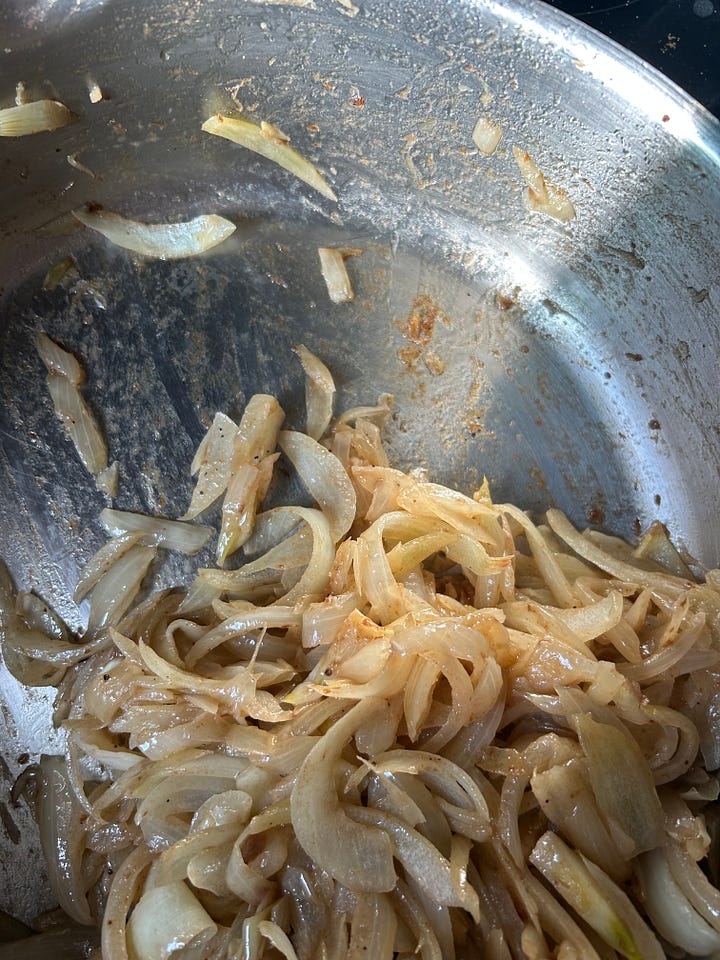
Slice a bunch of onions — three or four. Add a pat or two of butter and a glug or two of olive oil (you can also omit the butter) in a large, wide saucepan on high heat. Cover the sliced onions with the fats, then put heat on low. Allow to cook for about an hour, mixing frequently throughout. Toward the end, de-glaze the pan with a splash of wine, beer or stock - I’ve done it with all three in the past.
Raw
I love raw onions, too. A simple onion relish — diced onions with a splash of lemon juice and a sprinkle of salt and red chili powder — or simply, diced onions — is a common accompaniment to Indian meals. It's a couldn’t-be-easier addition that makes a meal feel special.
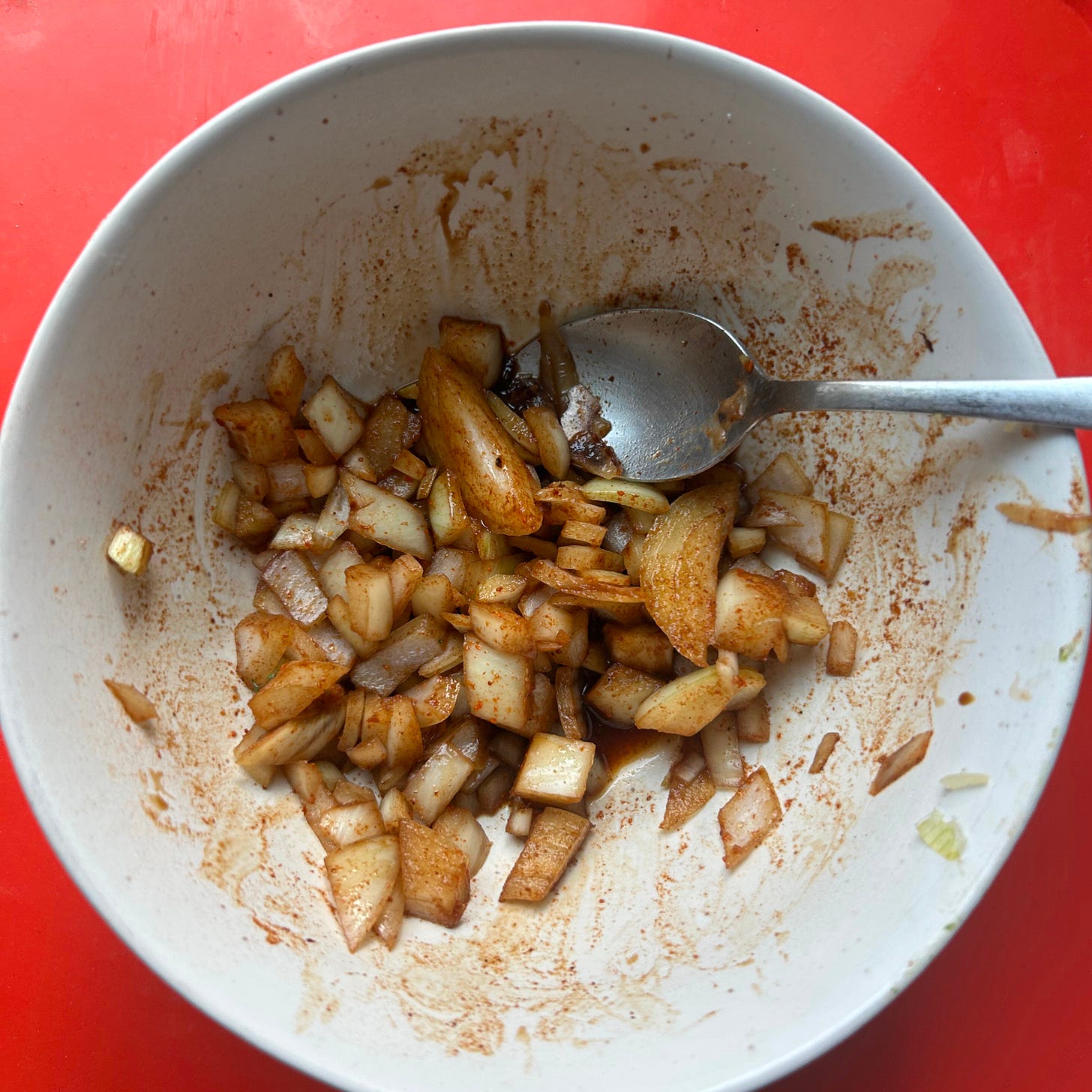
Growing up in the West, I heard many associations of onions with "stinkiness,” which I doubt I would have had I grown up in India or elsewhere not in the West. I feel sad for myself that I grew up with these messages. Looking back, they feel repressive, uptight, even prudish.
I was planning to write only about caramelized onions, but as I was writing I started thinking about these repressive messages. I realized I could not in good conscience feature only a European-style method of cooking onions. And I’m glad I did! The raw relish adds fun new dimensions to both my lunch and this newsletter.
What to do re: your breath after eating raw onions? I don’t know. Brush your teeth and don’t make a big deal out of it.
Newsfeed
“Analysts Expect More Food Mergers in 2025,” Food and Power. “With less aggressive enforcers taking over the Department of Justice and Federal Trade Commission, analysts anticipate that mergers and acquisitions will increase in 2025. Food industry experts project that dominant brands and private equity firms will buy more mid-sized companies, threatening innovation, price competition, and jobs.” It’s more important than ever to support small businesses, in food and other industries.
“How MAHA Poisons the Food Movement,” Mother Jones. Tom Philphot writes: “Now that Trump has tapped him to lead the Department of Health and Human Services, my fear is that Kennedy’s reckless anti-vaccine stances, conspiracy theorizing, and love of some of the Internet’s most unhinged “wellness” bunkum will make legitimate critiques of the ways we grow and process food appear equally crackpot—affirming a narrative that Big Ag and Big Food have promoted for decades.”
“After Trump’s pullback, Bloomberg promises to fill US funding gap to UN climate body,” Climate Home News. Look, I’m glad he’s doing this and that he’s not a soulless ghoul, wandering the Earth like a vampire, like his billionaire peers. But our outsourcing of challenges like climate change and public health to billionaires like Bloomberg and Bill Gates is deeply disturbing. It’s also lazy.
Li’l Nub
With Trump back in power, I’ve been re-watching Reno 911. It’s the only show that feels honest right now.
Thank you for reading! Please ❤️ below if you liked it, and I always welcome your thoughts and feedback!


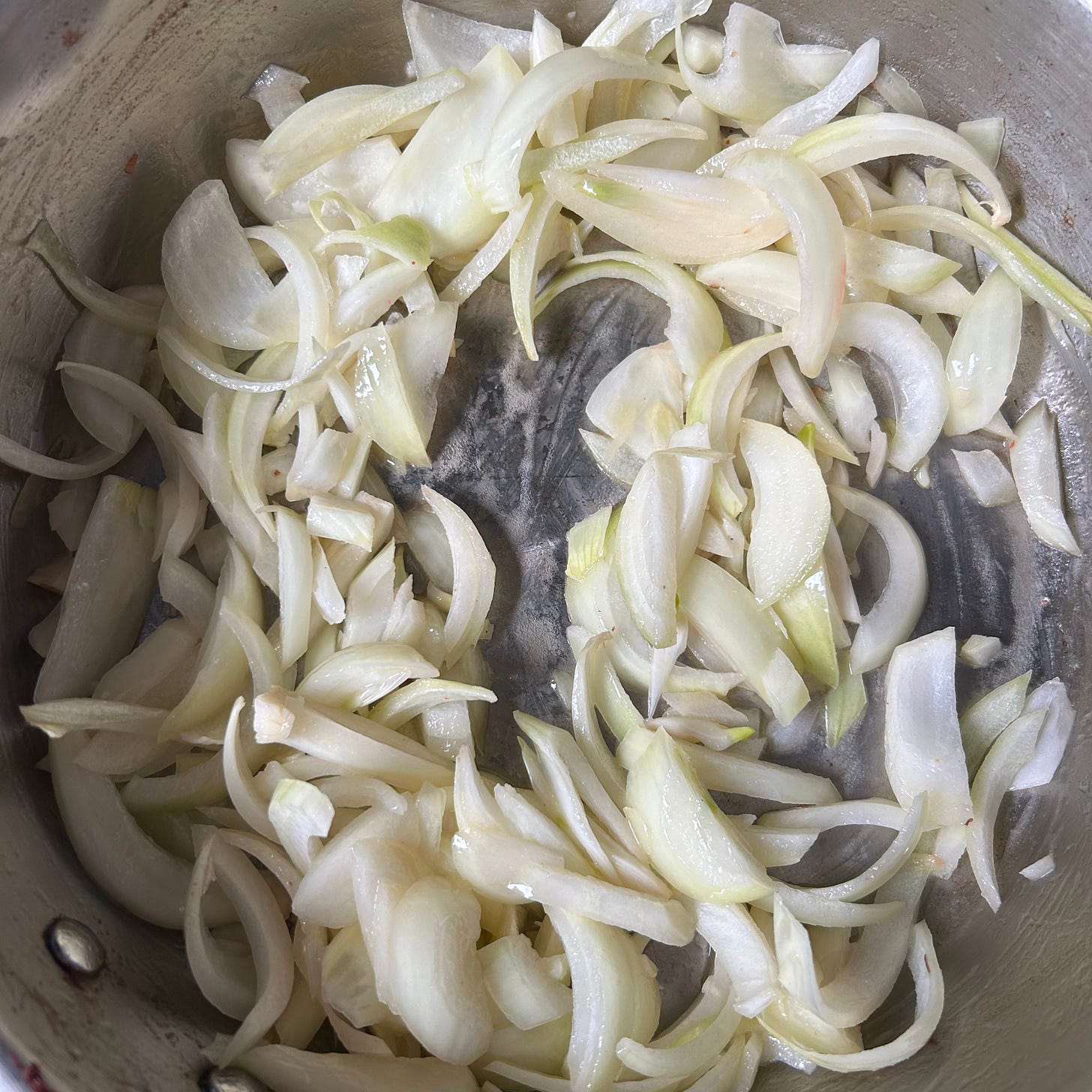
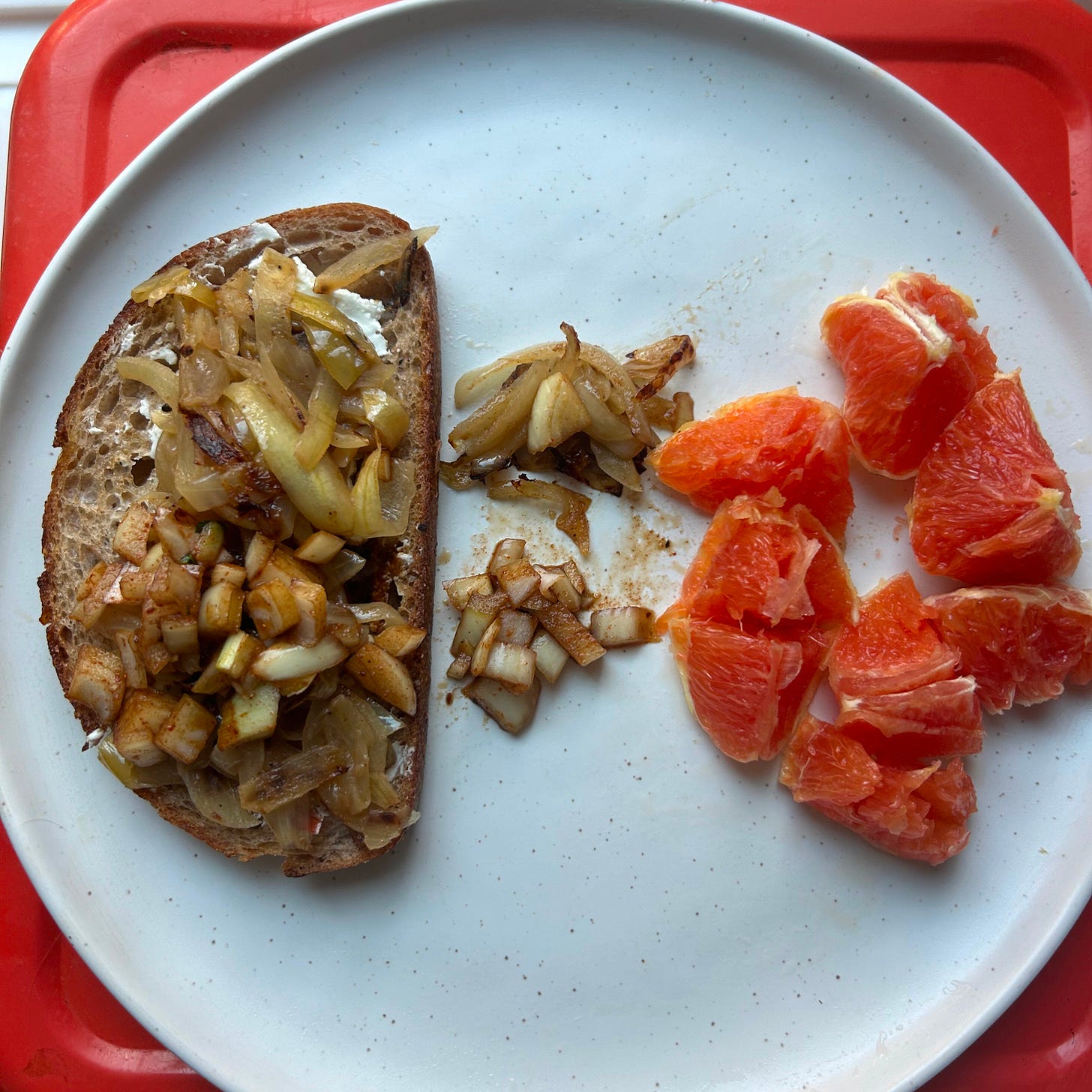
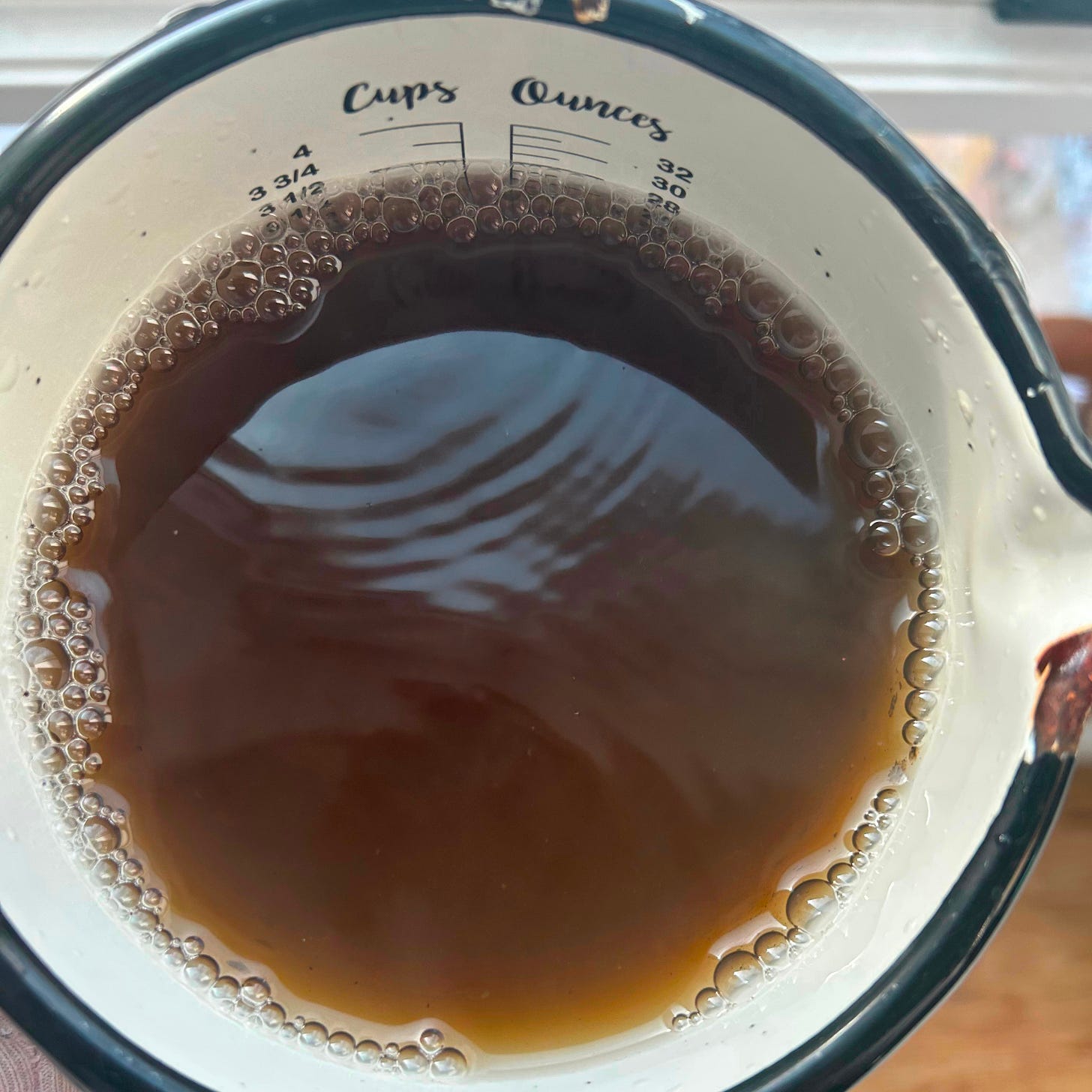



Reno 911 is an underrated show.